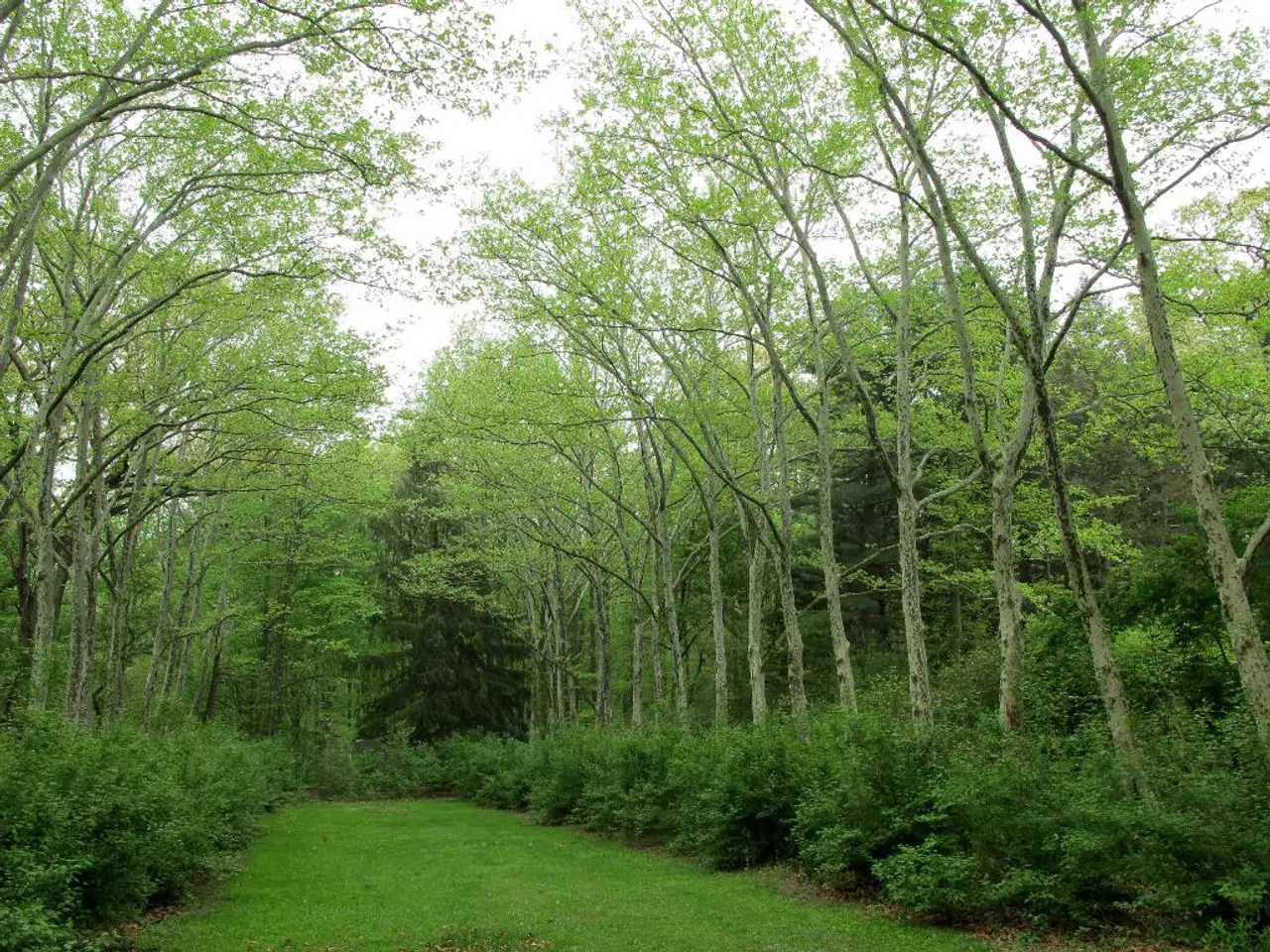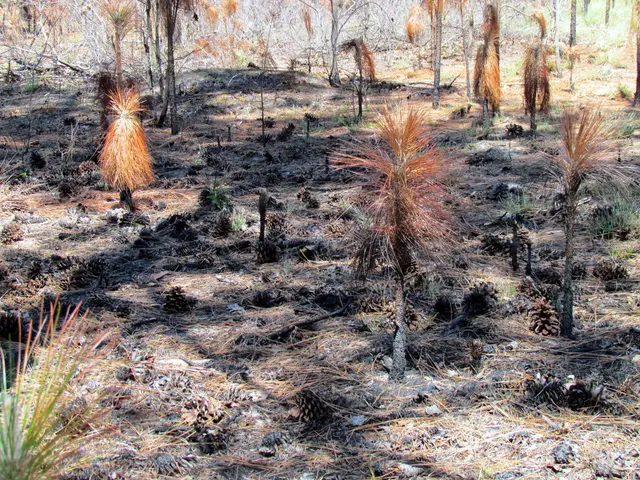Lawn enthusiasts intend to limit their mowing sessions to a single time in May, as per a recently conducted poll endorsing the No Mow May initiative.
In a significant shift towards eco-conscious gardening, a growing number of people in the UK are embracing the "No Mow May" campaign, which encourages less frequent and later lawn mowing to benefit wildlife.
According to a recent poll, an estimated 73% of people now believe that leaving lawns unmown for a month or more can help butterflies, bees, and other wildlife thrive. With an estimated 23 million gardens in the UK, the potential for better managed grassland habitat - even if it's just a small patch of lawn - is immense.
Sarah Shuttleworth, senior ecological advisor at Plantlife, emphasised the importance of this practice, stating that leaving lawns unmown in May allows a variety of wild plants to flourish, providing a rich food source for wildlife.
The poll results also show that people are becoming more aware of the benefits of longer lawns for wildlife support. In fact, a study published this month showed that leaving areas of grass long can increase your garden butterflies by 93%.
The campaign, initiated to promote plant growth and increase biodiversity on public lawns, is being implemented as part of local environmental actions, such as in Düsseldorf, to foster species diversity by avoiding mowing in May.
When it comes to lawn mowing frequency, 46% of respondents aim to mow no more than once over the course of May. Interestingly, the split on lawn mowing has revealed that men intend to mow more frequently than women: 5% of men indicated they will be mowing more than once a week this May compared with only 2% of women.
More gardeners are also recognising the value of wild plants and longer lawns in supporting wildlife. As a result, Plantlife encourages people to avoid using moss killer - lawn moss can help some wild plants establish - and to steer clear of herbicides or fertilisers, which are both detrimental to many wild plants.
In addition, many councils are adjusting their approach to mowing, reducing their activity on roadside verges and public lawns. This shift towards more wildlife-friendly practices is a positive step towards addressing the alarming statistic that approximately 97% of wildflower meadows have been eradicated in less than a century.
Overall, 84% of respondents consider it important to look after the environment and support conservation efforts. With the increasing awareness and participation in campaigns like No Mow May, it seems that the UK is moving towards a more sustainable and wildlife-friendly approach to gardening.
As the No Mow May campaign gains momentum, it's clear that more and more people are recognising the vital role they can play in promoting biodiversity and supporting local wildlife. By making small changes in our gardens, we can collectively make a big difference.
Read also:
- Benadryl: Impact on Pregnancy, Breastfeeding, and Beyond
- Company manufacturing Plumpy'Nut is thrilled beyond belief!
- Enhancements to Networking in Senior Care, Fedding Positive Experiences for Service Providers and Elderly Residents
- Ileostomy stool caracteristics: What's normal after undergoing an ileostomy?








